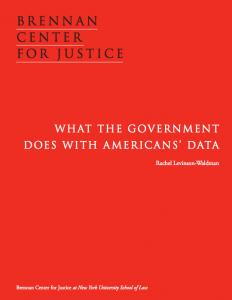The Brennan Center for Justice at New York University School of Law released a report that examined the ways that the US intelligence community collects, shares, and stores data of suspect, as well as of innocent citizens.
Asking what happens to the rest of the haystack in search for the needle, the report found that “in many cases, information carrying no apparent investigative value is treated no differently from information that does give rise to reasonable suspicion of criminal or terrorist activity.”
Other cases highlight the use of “national security” as a justification for vaguely defined exceptions that compromise data protection standards. On the bottom line, “presumptively innocuous information may be retained for periods ranging from two weeks to five years to 75 years or more.”
The report’s recommendations include a reformation of the Privacy Act of 1974 and the prohibition to retain and share domestically-collected data about citizens without reasonable suspicion of criminal activity.
At the moment, public attention is focused on bulk metadata collection under sections 215 of the Patriot Act and 702 of the Foreign Intelligence Surveillance Act (FISA), as well as on surveillance activities of the National Security Agency (NSA) under Executive Order 12333. The report of the Brennan Center draws attention on the separate issue of what happens with the data after it is collected.





Leave a Reply